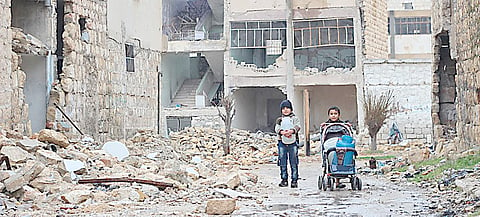
- NEWS
- the EDIT
- COMMENTARY
- BUSINESS
- LIFE
- SHOW
- ACTION
- GLOBAL GOALS
- SNAPS
- DYARYO TIRADA
- MORE

The recent official declaration of a cholera outbreak in the Aleppo region of Syria represents "a serious threat to people in Syria" and the whole Middle East region, the United Nations humanitarian relief coordinator for the country said.
Imran Riza, who is also resident coordinator, said in a statement that "swift and urgent action is needed to prevent further illness and death. UN agencies and partner non-governmental organizations are coordinating closely with health authorities to ensure a timely and effective response."
The outbreak was declared on 10 September by the Syrian Ministry of Health, following 15 confirmed laboratory cases, including one fatality, Riza said.
A total of 936 cases of severe acute watery diarrhea were reported between 25 August and 10 September, which led to "at least eight deaths," he reported.
Most cases were reported from Aleppo (72.2 percent) and Deir-ez-Zor (21.5 percent), with cases also reported in Ar-Raqqa, Al Hasakeh, Hama and Lattakia.
To date, the number of confirmed cholera cases is 20 in Aleppo, four in Lattakia and two in Damascus — both of those infected in the capital had travelled from Aleppo.
Euphrates link
"Based on a rapid assessment conducted by health authorities and partners, the source of infection is believed to be linked to people drinking unsafe water from the Euphrates River and using contaminated water to irrigate crops, resulting in food contamination," the UN humanitarian coordinator said.
"Cholera remains a global threat to public health and an indicator of inequity," he added.
